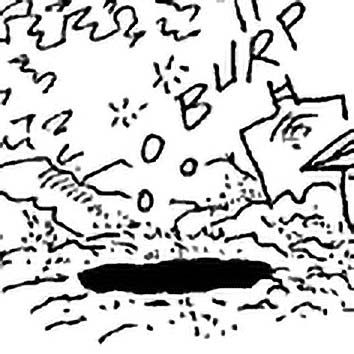MATI SYRA ZEMLYA
Slavic Earth Goddess 🌍
Also known as Mata Syra Zjemlja, Mati Syra Zemlia, Matisyrazemlya

Original Earth Mother Goddess and Protector of Sperm
Her name means Mother of the Moist Earth. Once Gods have triple-barrelled names they tend to veer towards the bizarre. Mati Syra Zemlya is a potent Earth Mother who is very very fertile. She’s always damp and easily soiled. So be careful where you spit — it could have unforeseen consequences.
Probably one of the most ancient and fundamental deities around, her roots go back into the shadows before history. She is the planet Earth, and you can’t get more fundamental than that.
Miss Moist is sometimes credited with a son, the proud plower Mikula, although with all that fertility going on it’s surprising she doesn’t have an entire continent of offspring. In some places, particularly in Ukraine, her fertile endeavors extended to looking after sperm. It’s a messy job, but someone has to control those things.
She can manifest as a hole in the ground. Dig your own. Speak into it. If you are going on a journey, kiss it. She is very partial to bread, wine and beer. Drop and pour it down. Don’t be stingy. And if you plow a furrow round your house at night you will be plague-free.
As a Goddess from before recorded mythology, her origins are somewhat speculative. She pops up all over the place under many different names, and is frequently associated with the rather more humdrum Mokosh. Nowadays she is mostly glossed over as a Christian saint. There is not much pouring of beer into holes in the ground anymore. The poor girl must be getting thirsty. Somebody should start a campaign.
Mati Syra Zemlya Facts and Figures
Name: Mati Syra Zemlya
Pronunciation: Coming soon
Alternative names: Mata Syra Zjemlja, Mati Syra Zemlia, Matisyrazemlya
Gender: Female
Type: Goddess
Celebration or Feast Day: Unknown at present
Role: 🌍
In charge of: the Earth
Area of expertise: Earth
Good/Evil Rating: GOOD, quite approachable
Popularity index: 8179
Cite this article
Here's the info you need to cite this page. Just copy the text in the box below.
Article last revised on May 25, 2019 by Rowan Allen.
Editors: Peter J. Allen, Chas Saunders
References: Coming soon.